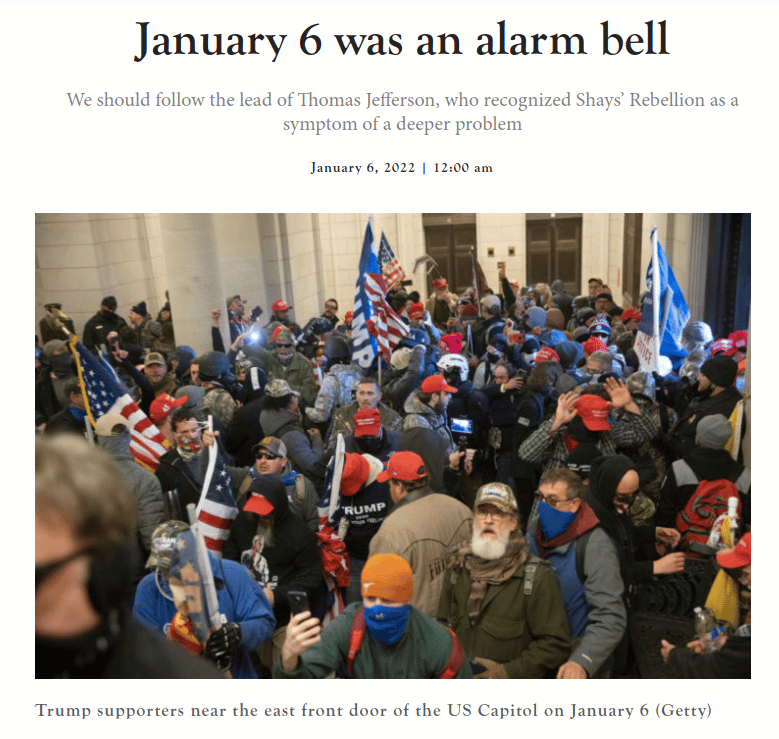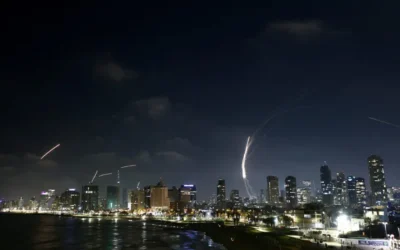
“This uneasiness has produced acts absolutely unjustifiable,” Jefferson wrote, “but I hope they will provoke no severities from their governments.” He didn’t approve of the insurrection, but he feared how the authorities might respond. “Unsuccessful rebellions indeed generally establish the incroachments on the rights of the people which have produced them,” a fact that “should render honest republican governors so mild in their punishment of rebellions, as not to discourage them too much.”
Were insurrections like this one a threat to democracy? No, they were a concomitant of democracy. Jefferson believed that a government “wherein the will of every one has a just influence” was subject to certain unavoidable evils, “the principal of which is the turbulence to which it is subject.” And yet “Even this evil is productive of good. It prevents the degeneracy of government, and nourishes a general attention to the public affairs.” A small-time insurrection now and again “is a medicine necessary for the sound health of government.”
Jefferson stood in a long tradition of both supporters and opponents of democracy who understood it in this light. Popular government is tumultuous government, not the sterile, clinically administered thing of today’s democracy-from-above idealists. To be sure, Jefferson’s taste for tumult was stronger than that of most people even in his own time. Malo periculosam libertatem quam quietam servitutem, he wrote to Madison: “I prefer a dangerous freedom to tranquil servitude.”
Daniel McCarthy At The Spectator more here






























